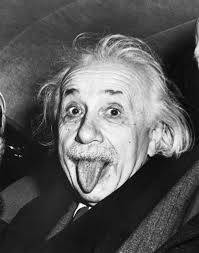Introduction:
Albert Einstein, known as one of the greatest minds in modern physics, revolutionized our understanding of space, time, and energy. This article explores the life, achievements, and lasting impact of Albert Einstein on science and society.
1. Early Life and Education:
• Birth and Family: Albert Einstein was born on March 14, 1879, in Ulm, Germany, to Hermann and Pauline Einstein.
• Early Years: Growing up in Munich, Einstein showed an early interest in mathematics and physics, questioning established ideas from a young age.
2. Academic Journey:
• University Studies: Einstein studied physics and mathematics at the Swiss Federal Polytechnic in Zurich, graduating in 1900.
• Career Beginnings: After working as a patent examiner in Bern, Switzerland, Einstein began publishing papers that would later form the foundation of modern physics.
3. Theory of Relativity:
• Special Relativity (1905): Einstein’s groundbreaking paper introduced the theory of special relativity, challenging Newtonian mechanics and proposing that the laws of physics are the same for all observers in uniform motion.
• General Relativity (1915): Building on his earlier work, Einstein formulated the theory of general relativity, which describes gravity as a curvature of spacetime caused by mass and energy.
4. Scientific Contributions:
• Photoelectric Effect: Einstein’s work on the photoelectric effect in 1905 earned him the Nobel Prize in Physics in 1921, demonstrating the particle-like nature of light and laying the groundwork for quantum theory.
• Statistical Mechanics: Contributed significantly to the development of quantum mechanics and statistical physics, particularly through his collaboration with physicists like Niels Bohr and Max Planck.
5. Humanitarian and Political Activism:
• Pacifism: Einstein was a vocal advocate for peace and disarmament, particularly during World War I and II, urging global cooperation and nuclear disarmament.
• Civil Rights: In the United States, where he settled in 1933, Einstein was active in civil rights movements, speaking out against racism and segregation.
6. Legacy and Cultural Impact:
• Public Figure: Einstein’s fame transcended academia, making him a cultural icon synonymous with genius and intellectual curiosity.
• Einstein’s Quotes and Popularity: Famous quotes such as “Imagination is more important than knowledge” and his iconic image with unkempt hair and a thoughtful expression remain iconic symbols of scientific inquiry and wisdom.
7. Later Years and Death:
• Academic Recognition: Einstein continued to work on unified field theory and other scientific inquiries until his death.
• Passing: Albert Einstein died on April 18, 1955, in Princeton, New Jersey, leaving behind a legacy of scientific achievement and a lasting impact on the field of physics.
Conclusion:
Albert Einstein’s contributions to physics, including the theory of relativity and quantum mechanics, reshaped our understanding of the universe and laid the groundwork for countless advancements in science and technology. Beyond his scientific prowess, Einstein’s humanitarian efforts and advocacy for peace underscore his enduring influence on global culture and society.
This article provides a comprehensive overview of Albert Einstein’s life, scientific achievements, cultural impact, and enduring legacy. Adjustments can be made to emphasize specific aspects of his scientific theories or personal life as desired.



No comments yet
Be the first to share your thoughts!